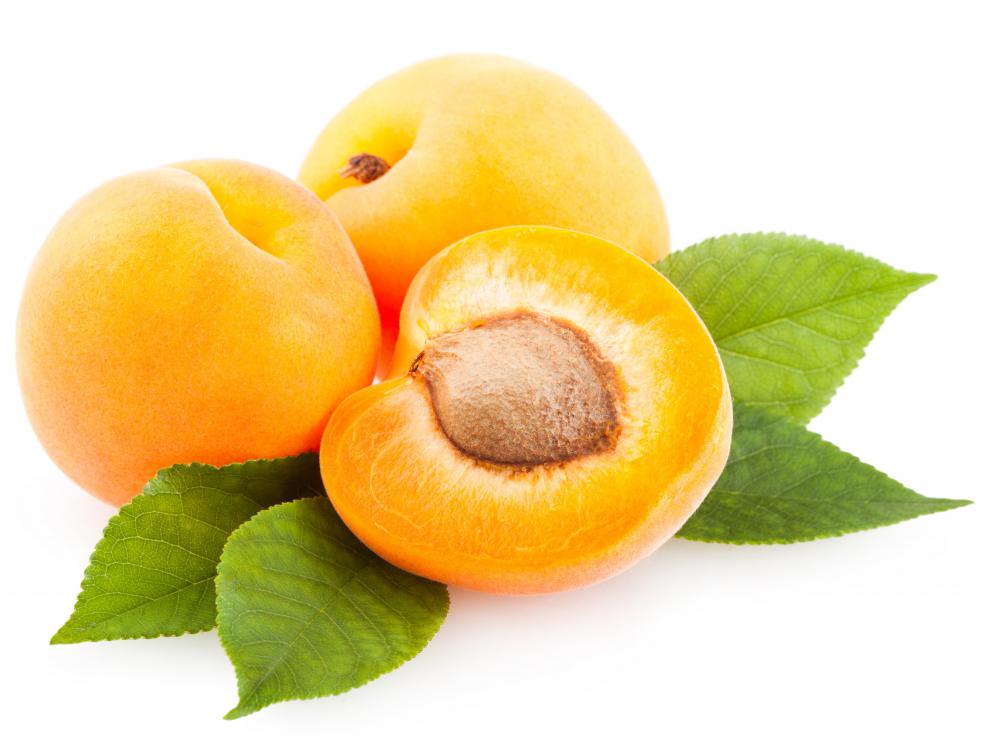At WiseGEEK, we're committed to delivering accurate, trustworthy information. Our expert-authored content is rigorously fact-checked and sourced from credible authorities. Discover how we uphold the highest standards in providing you with reliable knowledge.
What is Pangamic Acid?
Pangamic acid, also known as vitamin B15, was first derived by Ernest Krebs in 1951 from apricot kernels. It is found in whole grain rice, Brewer’s yeast, pumpkin and sunflower seeds, apricot seeds and beef blood. Studies have found that pangamic acid helps in the formation of some amino acids, which in turn are used to build proteins in the cell. Some of these proteins are involved in the breakdown of glucose during cellular respiration. Pangamic acid has also been shown to improve circulation and, as a result, increase the amount of oxygen reaching tissues of the body.
Due to its stimulating effect on the circulatory system, vitamin B15 has been used in Europe for the treatment of premature aging. It can help protect the body from pollutants and can be taken to assist people who live in polluted areas or under stress. It is also known to lower blood cholesterol and is helpful in the treatment of arteriosclerosis, or hardening of the arteries, and hypertension, or high blood pressure.

It has been shown that pangamic acid assists in the healing process by increasing the available oxygen in the blood, improving the circulation and by increasing the distribution of vital nutrients throughout the body. It is also used as a supplement by some athletes to enhance circulation and reduce the build-up of lactic acid in muscles. This in turn improves the performance and lessens the onset of fatigue for the athlete.

Although known as vitamin B15, pangamic acid has not been accepted as a vitamin everywhere because it has yet to be deemed as essential in the human diet. In fact, it is not available in the United States and has been removed from the B-complex vitamins. This is due to the fact that it is unresolved if in the human body actually needs pangamic acid, and no symptoms or diseases result if its consumption is restricted. The US Food and Drug Administration (FDA) removed pangamic acid from the shelves in the 1970s. It suggests that Dimethyl glycine (DMG) be taken instead of pangamic acid, as DMG promotes the production of pangamic acid in the body.

The FDA continues to monitor the wide range of medical conditions treated with vitamin B15 in other countries, such as Russia. It has also been used in European countries to treat alcoholism as it is thought to help reduce cravings. The substance has shown some promise in treating hangovers because it appears to enhance the function of the liver, which helps in the detoxification process. Finally, it has been used to treat liver disease and some types of chemical poisonings.
AS FEATURED ON:
AS FEATURED ON:













Discuss this Article
Post your comments